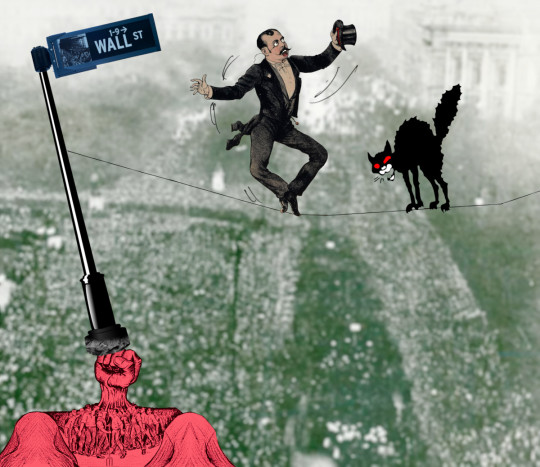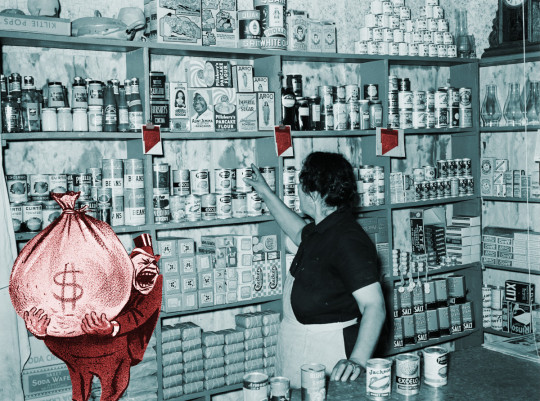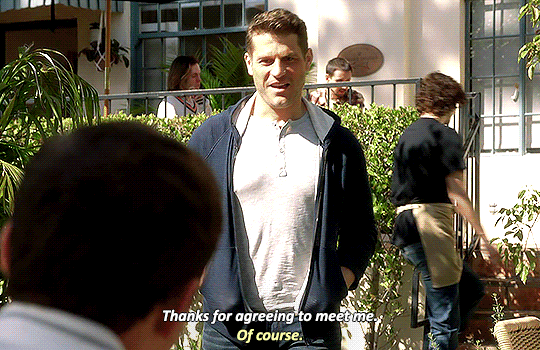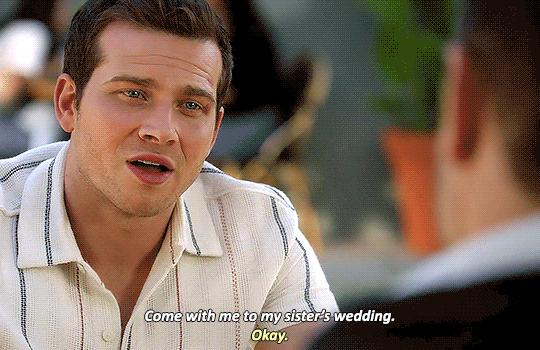#CARES ACT
Text
Precaratize bosses

I'm touring my new, nationally bestselling novel The Bezzle! Catch me SUNDAY (Apr 21) in TORINO, then Marin County (Apr 27), Winnipeg (May 2), Calgary (May 3), Vancouver (May 4), and beyond!

Combine Angelou's "When someone shows you who they are, believe them" with the truism that in politics, "every accusation is a confession" and you get: "Every time someone accuses you of a vice, they're showing you who they are and you should believe them."
Let's talk about some of those accusations. Remember the moral panic over the CARES Act covid stimulus checks? Hyperventilating mouthpieces for the ruling class were on every cable network, complaining that "no one wants to work anymore." The barely-submerged subtext was their belief that the only reason people show up for work is that they're afraid of losing everything – their homes, their kids, the groceries in their fridge.
This isn't a new development. Back when Clinton destroyed welfare, his justification was that "handouts" make workers lazy. The way to goad workers off their sofas (and the welfare rolls) and into jobs was to instill fear in them:
https://www.theatlantic.com/business/archive/2018/03/welfare-childhood/555119/
This is also the firm belief of tech bosses: for them, mass tech layoffs are great news, because they terrorize the workers you don't fire, so that they'll be "extremely hardcore" and put in as many extra hours as the company demands, without even requiring any extra pay in return:
https://fortune.com/2022/10/06/elon-musk-jason-calacanis-return-to-office-gentlemens-layoffs-twitter/
Now, there's an obvious answer to the problem of no one taking a job at the wage being offered: just increase the offer. Capitalists claim to understand this. Uber will tell you that surge pricing "incentivizes drivers" to take to the streets by offering them more money to drive during busy times:
https://www.uber.com/blog/austin/providing-rides-when-they-are-most-needed/
(Note that while Uber once handed the lion's share of surge price premiums to drivers, these days, Uber just keeps the money, because they've entered the enshittification stage where drivers are so scared of being blacklisted that Uber can push them around instead of dangling carrots.)
(Also note that this logic completely fails when it comes to other businesses, like Wendy's, who briefly promised surge-priced hamburgers during busy times, but without even the pretense that the surge premium would be used to pay additional workers to rush to the restaurant and increase the capacity:)
https://www.theguardian.com/food/2024/feb/27/wendys-dynamic-surge-pricing
So bosses knew how to address their worker shortage: higher wages. You know: supply and demand. For bosses, the issue wasn't supply, it was price. A worker who earns $10/hour but makes the company $20 profit every hour is splitting the surplus 50:50 with their employer. The employer has overheads (rent on the shop, inventory, advertising and administration) that they have to pay out of their end of that surplus. But workers also have overheads: commuting costs, child-care, a professional wardrobe, and other expenses the worker incurs just so they can make money for their boss.
There's no iron law of economics that says the worker/boss split should be 50/50. Depending on the bargaining power of workers and their bosses, that split can move around a lot. Think of McDonald's and Walmart workers who work for wildly profitable corporate empires, but are so badly paid that they have to rely on food stamps. The split there is more like 10/90, in the boss's favor.
The pandemic changed the bargaining power. Sure, workers got a small cushion from stimulus checks, but they also benefited from changes in the fundamentals of the labor market. For example, millions of boomers just noped out of their jobs, forever, unwilling to risk catching a fatal illness and furious to realize that their bosses viewed that as an acceptable risk.
Bosses' willingness to risk their workers' lives backfired in another way: killing hundreds of thousands of workers and permanently disabling millions more. Combine the boomer exodus with the workers who sickened or died, and there's just fewer workers to go around, and so now those workers enjoy more bargaining power. They can demand a better split: say, 75/25, in their favor.
Remember the 2015 American Airlines strike, where pilots and flight attendants got a raise? The eminently guillotineable Citibank analyst Kevin Crissey declared: "This is frustrating. Labor is being paid first again. Shareholders get leftovers":
https://www.thestreet.com/investing/american-airlines-flight-attendants-bash-citi-analyst-who-put-shareholders-before-workers-14134309
Now, obviously, the corporation doesn't want to offer a greater share of its surplus to its workforce, but it certainly can do so. The more it pays its workers, the less profitable it will be, but that's capitalism, right? Corporations try to become as profitable as they can be, but they can't just decree that their workers must work for whatever pay they want to offer (that's serfdom).
Companies also don't get to dictate that we must buy their goods at whatever price they set (the would be a planned economy, not a market economy). There's no law that says that when the cost of making something goes up, its price should go up, too. A business that spends $10 to make a widget you pay $15 for has a $5 margin to play with. If the business's costs go up to $11, they can still charge $15 and take $1 less in profits. Or they can raise the price to $15.50 and split the difference.
But when businesses don't face competition, they can make you eat their increased costs. Take Verizon. They made $79b in profit last year, and also just imposed a $4/month service charge on their mobile customers due to "rising operational costs":
https://www.reddit.com/r/LateStageCapitalism/comments/1c53c4p/79bn_in_profits_last_year_but_you_need_an_extra/
Now, Verizon is very possibly lying about these rising costs. Excuseflation is rampant and rising, as one CEO told his investors, when the news is full of inflation-talk, "it’s an opportunity to increase the prices without getting a whole bunch of complaining from the customers":
https://pluralistic.net/2023/03/11/price-over-volume/#pepsi-pricing-power
But even stipulating that Verizon is telling the truth about these "rising costs," why should we eat those costs? There's $79b worth of surplus between Verizon's operating costs and its gross revenue. Why not take it out of Verizon's bottom line?
For 40 years, neoliberal economists have emphasized our role as "consumers" (as though consumers weren't also workers!). This let them play us off against one-another: "Sure, you don't want the person who rings up your groceries to get evicted because they can't pay their rent, but do you care about it enough to pay an extra nickel for these eggs?"
But again, there's no obvious reason why you should pay that extra nickel. If you have the buying power to hold prices down, and workers have the labor power to keep wages up, then the business has to absorb that nickel. We can have a world where workers can pay their rent and you can afford your groceries.
So how do we get bosses to agree to take less so we can have more? They've told us how: for bosses, the thing that motivates workers to show up for shitty jobs is fear – fear of losing their homes, fear of going hungry.
When your boss says, "If you don't want to do this job for minimum wage, there's someone else who will," they're telling you that the way to get a raise out of them is to engineer things so that you can say, "If you don't want to pay me a living wage for this job, there's someone else who will."
Their accusation – that you only give someone else a fair shake when you're afraid of losing out – is a confession: to get them to give you a fair shake, we have to make them afraid. They're showing us who they are, and we should believe them.
In her Daily Show appearance, FTC chair Lina Khan quipped that monopolies are too big to care:
https://www.youtube.com/watch?v=oaDTiWaYfcM
Philosophers of capitalism are forever praising its ability to transform greed into public benefit. As Adam Smith put it, "It is not from the benevolence of the butcher, the brewer, or the baker, that we expect our dinner, but from their regard to their own interest." The desire to make as much money as possible, on its own, doesn't produce our dinner, but when the butcher, the brewer and the baker are afraid that you will take your labor or your wallet elsewhere, they pay more and charge less.
Capitalists don't want market economies, where they have to compete with one another, eroding their margins and profits – they want a planned economy, like Amazon, where Party Secretary Bezos and his commissars tell merchants what they can sell and tell us what we must pay:
https://pluralistic.net/2024/03/01/managerial-discretion/#junk-fees
Capitalists don't want free labor, where they have to compete with rival capitalists to bid on their workers' labor – they want noncompetes, bondage fees, and "training repayment agreement provisions" (TRAPs) that force their workers to stay in dead-end jobs rather than shopping for a better wage:
\https://pluralistic.net/2022/08/04/its-a-trap/#a-little-on-the-nose
Capitalists hate capitalism, because capitalism only works if the capitalists are in a constant state of terror inspired by the knowledge that tomorrow, someone smarter could come along and open a better business, poaching their customers and workers, and putting the capitalist on the breadline.
https://pluralistic.net/2024/04/18/in-extremis-veritas/#the-winnah
Being in a constant precarious state makes people lose their minds, and capitalists know it. That's why they work so hard to precaratize the rest of us, saddling us with health debt, education debt, housing debt, stagnating wages and rising prices. It's not just because that makes them more money in the short term from our interest payments and penalties. It's because it de-risks their lives: monopolies and cartels can pass on any extra costs to consumers, who'll eat shit and take it:
https://pluralistic.net/2022/02/02/its-the-economy-stupid/#overinflated
A workforce that goes to bed every night worrying about making the rent is a workforce that put in unpaid overtime and thank you for it.
Capitalists hate capitalism. You know who didn't hate capitalism? Karl Marx and Freidrich Engels. The first chapter of The Communist Manifesto is just these two guys totally geeking out about how much cool stuff we get when capitalists are afraid and therefore productive:
https://pluralistic.net/SpectreHaunting
But when capitalists escape their fears, the alchemical reaction that converts greed to prosperity fizzles, leaving nothing behind but greed and its handmaiden, enshittification. Google search is in the toilet, getting worse every year, but rather than taking reduced margins and spending more fighting spam, the company did a $80b stock-buyback and fired 12,000 skilled technologists, rather than using that 80 bil to pay their wages for the next twenty-seven years:
https://pluralistic.net/2024/02/21/im-feeling-unlucky/#not-up-to-the-task
Monopoly apologists like to argue that monopolists can rake in the giant profits necessary to fund big, ambitious projects the produce better products at lower prices and make us all better off. But even if monopolists can spend their monopoly windfalls on big, ambitious projects, they don't. Why would they?
If you're Google, you can either spend tens of billions on R&D to keep up with spam and SEO scumbags, or you can spend less money buying the default search spot on every platform, so no one ever tries another search engine and switches:
https://pluralistic.net/2024/04/04/teach-me-how-to-shruggie/#kagi
Compared to its monopoly earnings, the tech sector's R&D spending is infinitesimal:
https://pluralistic.net/2020/08/11/nor-glom-of-nit/#capitalists-hate-competition
How do we get capitalists to work harder to make their workers and customers better off? Capitalists tell us how, every day. We need to make them afraid.

If you'd like an essay-formatted version of this post to read or share, here's a link to it on pluralistic.net, my surveillance-free, ad-free, tracker-free blog:
https://pluralistic.net/2024/04/19/make-them-afraid/#fear-is-their-mind-killer

Image:
Vlad Lazarenko (modified)
https://en.m.wikipedia.org/wiki/File:Wall_Street_Sign_%281-9%29.jpg CC BY-SA 3.0
https://creativecommons.org/licenses/by-sa/3.0/deed.en
#pluralistic#petard#precarity#cares act#stimulus#market discipline#competition#too big to care#antitrust#labor#trustbusting#consumer welfare#every accusation is a confession
157 notes
·
View notes
Text

What’s up with how the dunmeshi fandom just lies about this kind of stuff all the time. It is easily confirmable information that it was a monthly series, something incredibly common in the industry.

A not weekly magazine schedule is literally common !! Especially in the seinen shoujo and josei demographics, sometimes monthly, sometimes biweekly, sometimes every two months, sometimes seasonal! Please stop lying about how Dunmeshi was some special unique creation that defies all standards of manga just to hype it up because it is so clear that every single one of these comparisons is centered around Weekly Shonen Jump (and understand that SJ has many magazines under its brand that are monthly or semimonthly). Not everything is WSJ and it needs to stop being the only point of reference in conversations like this 🤧
#sorry im having a moment.#kris actually talks#I can elaborate more on this bc I’m a nerd but like#I hope this doesn’t come off as disagreeing with the idea of moving more magazines off weekly schedules#but maybe let’s not lie ??? and act like tons of series including popular ones aren’t already in monthly ones#dungeon meshi#delicious in dungeon#adding the tag also now that it’s going around anyways. hi guys.#sorry for not including alt text originally I was not expecting reblogs but I have added it now o7#blah blah check reblogs with comments for additional thoughts from me if you care etc etc
22K notes
·
View notes
Text

#funny talking tag#My favorite thing to do is HC characters as trans but also that they've never heard that term before and act accordingly.#My other favorite thing to do is make characters repressed.#My other other favorite thing to do is make a character go ''I feel like a(n) object/animal/thing pretending to be a man/woman''#''but I don't really care about that right now I have a job''#Anyway while this post can be about whichever characters you feel fit I made this with a certain character in mind.#(Dimentio of SPM fame) (He has something really specific going on that makes me cackle) (You can ask me about it)#(Also Morceau Oleander is a trans woman to me because she would be happier)#(and she deserves to live a life not defined by other's expectations of her)#Someone put a forbidden and ancient curse on this post so no more.
29K notes
·
View notes
Text


#ordinary photo of yeti#they made astarion in a lab for me to be obsessed with.#like hottest man in game for me is halsin truthfully. astarion is my shitty little white dog with separation anxiety who bites people.#very different things. if i say i'm doing a playthrough as astarion that's when you put me down#main factor motivating me not to is i need to hear neil newbon's voice acting at least once a minute or i die.#i've got a dark urge concept rattling around the brain but i should maybe self-impose a gaming break and take care of. responsibilities 😐#babbling
63K notes
·
View notes
Text
New Orleans Woman Pleads Guilty to CARES Act Fraud and IRS False Statements

New Orleans Woman Pleads Guilty to CARES Act Fraud and IRS False Statements
New Orleans woman pleads guilty to CARES Act fraud, IRS false statements, and theft of government funds. Sentencing set for August 2024.
Read more: https://smallbiztrends.com/new-orleans-woman-pleads-guilty-to-cares-act-fraud-and-irs-false-statements/
0 notes
Text


ALT
#aromantic#actually aromantic#aro#aro pride#love loses#good job everyone. im so proud of us <2#edit (12/31): also pls do not quote 'not all loves are romantic/sexual' at me#1. aros have always been the first to dissect the definition of love. we are likely to know that before you.#2. are we gonna keep pretending that aros aint only an afterthought to the 'love wins' and 'love is love' crowds.#3. im loveless aro. i do not care for love whether its romantic platonic or familial etc etc.#one can do good w love. one can also do evil w love. love =/= morals. stop acting like it is.
19K notes
·
View notes
Text
Nearly 40 people in Wisconsin have been charged with defrauding COVID funds
See the list of people and their charges here. A public hotline is available for reporting fraud.
By Hina Suzuki, THE BADGER PROJECT
During the pandemic, the federal government distributed a massive $4.2 trillion to local governments, businesses and people. Some of those funds were stolen, and one estimate puts the amount in the hundreds of billions of dollars.
Now, the government is trying to reclaim at least some of those stolen funds and prosecute the thieves.
In August 2023, the U.S.…

View On WordPress
0 notes
Text
Me when Logan was about to walk away in the end and Wade was like "Logan 🥺" and that's all it took for him to stay... Y'all I can't they love each other so much 😭

#whether it's friendship or y'all ship you can't say that they don't love each other this is so adorable to me i can't get over this movie#deadpool & wolverine#deadpool and wolverine#wade wilson#logan howlett#wade x logan#poolverine#Deadpool#wolverine#logan tried so hard to act tough but wade won 😭#you can't just sacrifice your life for a man and then act like you don't care bro you love him#he domesticated you#Deadpool 3
5K notes
·
View notes
Text
I love dunmeshi for the like.. built in horror of consumption. Like they eat to survive, they eat to honor their prey, they eat to possibly mourn someone. Laios eats monsters because he wants to learn more about the things he loves, Senshi eats monsters to feel included in the ecosystem because he didn't fit in with the outside and with most creatures in general, Chilchuck DOESN'T eat as much as he could because eating too much could kill all the party members, Marcille eats monsters and hates it but she still does it because she'll die before she could save Falin.
#i like it when food is depicted as more than food#like its insane to want to eat things you love but also the act of knowing more about what you love is also valid#i think senshis backstory really got to me just because he eats monsters cause hes lonely#but also he eats them because he hopes one of them will taste like that one soup#because then he'll know whether he ate someone he cared about or not#i feel like you could get smn if you compared senshi and laios's opinion on food but i don't want to get into it#dungeon meshi#dunmeshi#delicious in dungeon
5K notes
·
View notes
Text
#CARES Act#Government Stimulus#Business Taxes#Tax Benefits#Tax Implications#Economic Relief#Tax Planning#Compliance#Financial Resilience#American Rescue Plan Act (ARPA)
0 notes
Text
The one weird monopoly trick that gave us Walmart and Amazon and killed Main Street

I'm coming to BURNING MAN! On TUESDAY (Aug 27) at 1PM, I'm giving a talk called "DISENSHITTIFY OR DIE!" at PALENQUE NORTE (7&E). On WEDNESDAY (Aug 28) at NOON, I'm doing a "Talking Caterpillar" Q&A at LIMINAL LABS (830&C).

Walmart didn't just happen. The rise of Walmart – and Amazon, its online successor – was the result of a specific policy choice, the decision by the Reagan administration not to enforce a key antitrust law. Walmart may have been founded by Sam Walton, but its success (and the demise of the American Main Street) are down to Reaganomics.
The law that Reagan neutered? The Robinson-Patman Act, a very boring-sounding law that makes it illegal for powerful companies (like Walmart) to demand preferential pricing from their suppliers (farmers, packaged goods makers, meat producers, etc). The idea here is straightforward. A company like Walmart is a powerful buyer (a "monopsonist" – compare with "monopolist," a powerful seller). That means that they can demand deep discounts from suppliers. Smaller stores – the mom and pop store on your Main Street – don't have the clout to demand those discounts. Worse, because those buyers are weak, the sellers – packaged goods companies, agribusiness cartels, Big Meat – can actually charge them more to make up for the losses they're taking in selling below cost to Walmart.
Reagan ordered his antitrust cops to stop enforcing Robinson-Patman, which was a huge giveaway to big business. Of course, that's not how Reagan framed it: He called Robinson-Patman a declaration of "war on low prices," because it prevented big companies from using their buying power to squeeze huge discounts. Reagan's court sorcerers/economists asserted that if Walmart could get goods at lower prices, they would sell goods at lower prices.
Which was true…up to a point. Because preferential discounting (offering better discounts to bigger customers) creates a structural advantage over smaller businesses, it meant that big box stores would eventually eliminate virtually all of their smaller competitors. That's exactly what happened: downtowns withered, suburban big boxes grew. Spending that would have formerly stayed in the community was whisked away to corporate headquarters. These corporate HQs were inevitably located in "onshore-offshore" tax haven states, meaning they were barely taxed at the state level. That left plenty of money in these big companies' coffers to spend on funny accountants who'd help them avoid federal taxes, too. That's another structural advantage the big box stores had over the mom-and-pops: not only did they get their inventory at below-cost discounts, they didn't have to pay tax on the profits, either.
MBA programs actually teach this as a strategy to pursue: they usually refer to Amazon's "flywheel" where lower prices bring in more customers which allows them to demand even lower prices:
https://www.youtube.com/watch?v=BaSwWYemLek
You might have heard about rural and inner-city "food deserts," where all the independent grocery stores have shuttered, leaving behind nothing but dollar stores? These are the direct product of the decision not to enforce Robinson-Patman. Dollar stores target working class neighborhoods with functional, beloved local grocers. They open multiple dollar stores nearby (nearly all the dollar stores you see are owned by one of two conglomerates, no matter what the sign over the door says). They price goods below cost and pay for high levels of staffing, draining business off the community grocery store until it collapses. Then, all the dollar stores except one close and the remaining store fires most of its staff (working at a dollar store is incredibly dangerous, thanks to low staffing levels that make them easy targets for armed robbers). Then, they jack up prices, selling goods in "cheater" sizes that are smaller than the normal retail packaging, and which are only made available to large dollar store conglomerates:
https://pluralistic.net/2023/03/27/walmarts-jackals/#cheater-sizes
Writing in The American Prospect, Max M Miller and Bryce Tuttle1 – a current and a former staffer for FTC Commissioner Alvaro Bedoya – write about the long shadow cast by Reagan's decision to put Robinson-Patman in mothballs:
https://prospect.org/economy/2024-08-13-stopping-excessive-market-power-monopoly/
They tell the story of Robinson-Patman's origins in 1936, when A&P was using preferential discounts to destroy the independent grocery sector and endanger the American food system. A&P didn't just demand preferential discounts from its suppliers; it also charged them a fortune to be displayed on its shelves, an early version of Amazon's $38b/year payola system:
https://pluralistic.net/2022/11/28/enshittification/#relentless-payola
They point out that Robinson-Patman didn't really need to be enacted; America already had an antitrust law that banned this conduct: section 2 of the the Clayton Act, which was passed in 1914. But for decades, the US courts refused to interpret the Clayton Act according to its plain meaning, with judges tying themselves in knots to insist that the law couldn't possibly mean what it said. Robinson-Patman was one of a series of antitrust laws that Congress passed in a bid to explain in words so small even federal judges could understand them that the purpose of American antitrust law was to keep corporations weak:
https://pluralistic.net/2023/04/14/aiming-at-dollars/#not-men
Both the Clayton Act and Robinson-Patman reject the argument that it's OK to let monopolies form and come to dominate critical sectors of the American economy based on the theoretical possibility that this will lead to lower prices. They reject this idea first as a legal matter. We don't let giant corporations victimize small businesses and their suppliers just because that might help someone else.
Beyond this, there's the realpolitik of monopoly. Yes, companies could pass lower costs on to customers, but will they? Look at Amazon: the company takes $0.45-$0.51 out of every dollar that its sellers earn, and requires them to offer their lowest price on Amazon. No one has a 45-51% margin, so every seller jacks up their prices on Amazon, but you don't notice it, because Amazon forces them to jack up prices everywhere else:
https://pluralistic.net/2024/03/01/managerial-discretion/#junk-fees
The Robinson-Patman Act did important work, and its absence led to many of the horribles we're living through today. This week on his Peoples & Things podcast, Lee Vinsel talked with Benjamin Waterhouse about his new book, One Day I’ll Work for Myself: The Dream and Delusion That Conquered America:
https://athenaeum.vt.domains/peoplesandthings/2024/08/12/78-benjamin-c-waterhouse-on-one-day-ill-work-for-myself-the-dream-and-delusion-that-conquered-america/
Towards the end of the discussion, Vinsel and Waterhouse turn to Robinson-Patman, its author, Wright Patman, and the politics of small business in America. They point out – correctly – that Wright Patman was something of a creep, a "Dixiecrat" (southern Democrat) who was either an ideological segregationist or someone who didn't mind supporting segregation irrespective of his beliefs.
That's a valid critique of Wright Patman, but it's got little bearing on the substance and history of the law that bears his name, the Robinson-Patman Act. Vinsel and Waterhouse get into that as well, and while they made some good points that I wholeheartedly agreed with, I fiercely disagree with the conclusion they drew from these points.
Vinsel and Waterhouse point out (again, correctly) that small businesses have a long history of supporting reactionary causes and attacking workers' rights – associations of small businesses, small women-owned business, and small minority-owned businesses were all in on opposition to minimum wages and other key labor causes.
But while this is all true, that doesn't make Robinson-Patman a reactionary law, or bad for workers. The point of protecting small businesses from the predatory practices of large firms is to maintain an American economy where business can't trump workers or government. Large companies are literally ungovernable: they have gigantic war-chests they can spend lobbying governments and corrupting the political process, and concentrated sectors find it comparatively easy to come together to decide on a single lobbying position and then make it reality.
As Vinsel and Waterhouse discuss, US big business has traditionally hated small business. They recount a notorious and telling anaecdote about the editor of the Chamber of Commerce magazine asking his boss if he could include coverage of small businesses, given the many small business owners who belonged to the Chamber, only to be told, "Over my dead body." Why did – why does – big business hate small business so much? Because small businesses wreck the game. If they are included in hearings, notices of inquiry, or just given a vote on what the Chamber of Commerce will lobby for with their membership dollars, they will ask for things that break with the big business lobbying consensus.
That's why we should like small business. Not because small business owners are incapable of being petty tyrants, but because whatever else, they will be petty. They won't be able to hire million-dollar-a-month union-busting law-firms, they won't be able to bribe Congress to pass favorable laws, they can't capture their regulators with juicy offers of sweet jobs after their government service ends.
Vinsel and Waterhouse point out that many large firms emerged during the era in which Robinson-Patman was in force, but that misunderstands the purpose of Robinson-Patman: it wasn't designed to prevent any large businesses from emerging. There are some capital-intensive sectors (say, chip fabrication) where the minimum size for doing anything is pretty damned big.
As Miller and Tuttle write:
The goal of RPA was not to create a permanent Jeffersonian agrarian republic of exclusively small businesses. It was to preserve a diverse economy of big and small businesses. Congress recognized that the needs of communities and people—whether in their role as consumers, business owners, or workers—are varied and diverse. A handful of large chains would never be able to meet all those needs in every community, especially if they are granted pricing power.
The fight against monopoly is only secondarily a fight between small businesses and giant ones. It's foundationally a fight about whether corporations should have so much power that they are too big to fail, too big to jail, and too big to care.

Community voting for SXSW is live! If you wanna hear RIDA QADRI and me talk about how GIG WORKERS can DISENSHITTIFY their jobs with INTEROPERABILITY, VOTE FOR THIS ONE!

If you'd like an essay-formatted version of this post to read or share, here's a link to it on pluralistic.net, my surveillance-free, ad-free, tracker-free blog:
https://pluralistic.net/2024/08/14/the-price-is-wright/#enforcement-priorities
#pluralistic#Robinson-Patman Act#ftc#alvaro bedoya#monopoly#monopsony#main street#too big to jail#too big to care#impunity#regulatory capture#prices#the american prospect#Max M Miller#Bryce Tuttle#a and p#wright patman
2K notes
·
View notes
Text
"The bigots up top think we're ALL fucked up! They want us ALL dead!" Hey that's cool dude you're right! Now are you saying this as a genuine expression of solidarity and community, or do you only bring this point up when the acknowledgement of intersectionality makes you uncomfortable? Is it a rallying cry, or a way to shut down people affected by intercommunity bigotry?
#any time someone brings up misogyny and transmisogyny someone says this shit#racism too#and it's just soo infuriating. like yeah okay the government wants me dead#but acting like we have to focus on that at the expense of people suffering from intercommunity issues... we can care about both you know#and it's not great when a space that is meant to be a welcoming exception to the norm still shits on you.
4K notes
·
View notes
Text
2020 and 2021 ERC Program Differences
If you’re familiar with the Employee Retention Credit (ERC), which was signed in March 2020 as part of the Coronavirus Aid, Relief, and Economic Security Act (CARES Act), you’ve probably noticed some significant changes in the program since its inception. Three additional important acts have been passed that amended the CARES Act of 2020:
Relief Act of 2021
American Rescue Plan Act of…

View On WordPress
#American Rescue Plan Act of 2021#CARES Act#Employee Retention Credit#ERC#Infrastructure Investment and Jobs Act (IIJA)#Relief Act of 2021
0 notes
Text





Tommy 'my priority is Evan' Kinard
#evan buckley#tommy kinard#bucktommy#kinley#911#911 spoilers#911edit#911 abc#oliver stark#lou ferrigno jr#one thing about tommy is he'll be there!#whether it's chim calling for help or eddie asking to hang out or buck asking him out#HE 👏 WILL 👏 BE 👏 THERE 👏#this man cares so much 😭#but he's also so gone on buck it's actually adorable#he worked like an 18 hour shift in a literal FIRE and didn't even stop to rest or shower before he ran to buck#(also my PS is acting up pls don't look at the quality of these gifs)#my stuff
4K notes
·
View notes
Text
8 AND A HALF MONTHS TILL GINGER GENDER TWINK AND ACTING CHOICES BIMBO ARE BACK

The second I see a GOS3 BTS photo I'm going to simply pass away, stimming won't be enough I will simply explode out of this skin prison-
#i dont care if theyre not talking im going to DIE#good omens#crowley#aziracrow#aziraphale#ineffable husbands#david tennant#ineffable idiots#ineffable brainrot#crowley x aziraphale#michael sheen#neil gaiman#david tennant is highly flammable#and will be cast into the flames again#nature is healing#good omens season 3#ginger gender twink#acting choices bimbo
3K notes
·
View notes
Text
Dos and Don'ts of Post Operative Care

Golden Age Companions introduces their Post Operative Care services. We specializes in giving expert support and help to persons recovering from surgery. Our competent cares are trained in medication management, wound care, mobility assistance, and emotional support, ensuring that their clients have a seamless and comfortable recovery process. Golden Age Companions seeks to improve the whole healing experience for people in need of post-surgery help by focusing on compassionate care.
0 notes